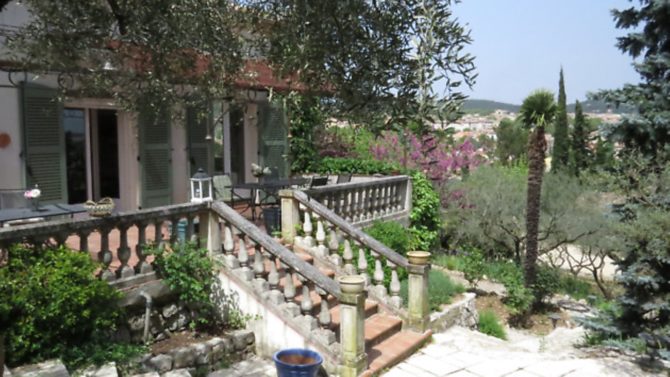Gîtes vs chambres d’hôtes

Glynis Shaw helps you decide whether you should rent out gîtes or open a B&B in France

Working in the hospitality business means sharing your home with strangers so you need to think about how hands on you would need – or want – to be. Is it best to run gîtes, where visitors stay in their own separate accommodation and you are always close by to help, or would you prefer a bed and breakfast where guests literally share your home?

Whichever choice you make, successfully hosting a holiday property will rely on you having a personable nature and a willingness to go the extra mile while offering a good professional service. When hosts provide this extra factor, holidaymakers feel really considered and wanted – and motivated to give rave reviews, recommend and rebook. That is the principle common to the running of both gîtes and B&Bs, so let’s consider what makes them different.

Running gîtes

When you live on-site in a separate property from a letting house or gîte, you will need to service and maintain the properties, respond to emergencies and work intensively on changeover days.

You will, of course, need to be welcoming and friendly to guests but there is also the chance to maintain your privacy.
When guests arrive, you will welcome them, show them their accommodation and explain how everything works. After that, you might be happy to operate an ‘open door’ policy for guests to come and ask for what they need at any time or your own house might be screened from the guests with access through a gate, creating a visual and psychological barrier. If you prefer to maintain some distance, then tell them hours when you are ‘in’ and perhaps arrange a welcome meet-up when they can draw on your local knowledge and ask questions about the property all in one go.
How much should you expect to mix with guests during their stay? This can vary a great deal between visitors and their own desire for privacy. It really is essential to use your sensitivity and judgement about how reserved your guests want to be and respect their choices – this sensitivity is one of the most important qualities of a gîte owner.
If you have several gîtes, you might bring people together for sport and games or offer an evening meal or barbecue once a week, perhaps with music under the stars. Families especially often like the chance for their children to mix with other youngsters. You also have the opportunity to generate extra income by offering meals or arranging activities.
Living on-site gives you the chance to meet lots of different people, but remember that you are running a business and they are on holiday, so be tolerant and friendly but never be tempted to burden them with your woes or involve them in local politics.
chambres d’hôtes
To run a successful chambres d’hôtes, you need to enjoy meeting new people with an open approach and also to be hospitable, well organised and flexible. This is obviously the most hands-on accommodation option for owners, as you literally have strangers constantly in your home.
Running a chambres d’hôtes is a full-time job, as you need to start early to cook and serve a good breakfast, clear away, clean and make up rooms when guests have left for the day. Their average stay is usually shorter than at a gîte, so you’ll also need to be on hand to check guests in and out.
If you offer the true table d’hôte experience, with an evening meal, this has to be taken communally and demands more shopping, preparation and clearing. You will also sit with your guests, so it’s essential to be swanlike – serene on the surface while paddling like mad underwater – but there is great satisfaction in the art of hospitality and enjoyment in convivial company.
However, chambres d’hôtes owners who don’t offer this type of meal do not necessarily spend much time with their guests – especially if they have their own quarters separate from guest rooms and facilities. Again, it’s a question of deciding how much distance you want to maintain and judging how much privacy your visitors prefer.
While the vast majority of guests will be charming and polite, be prepared for the difficult customers and families whose company you don’t enjoy. There is no option but to smile, do your best to please and breathe a sigh of relief when they leave. The compensation, of course, lies in the many interesting people you do meet, what you learn from them – and the fact that some, who started out as strangers, later return as friends.
Glynis Shaw is joint MD of French Connections holiday rentals and property sales online www.frenchconnections.co.uk
Share to: Facebook Twitter LinkedIn Email


